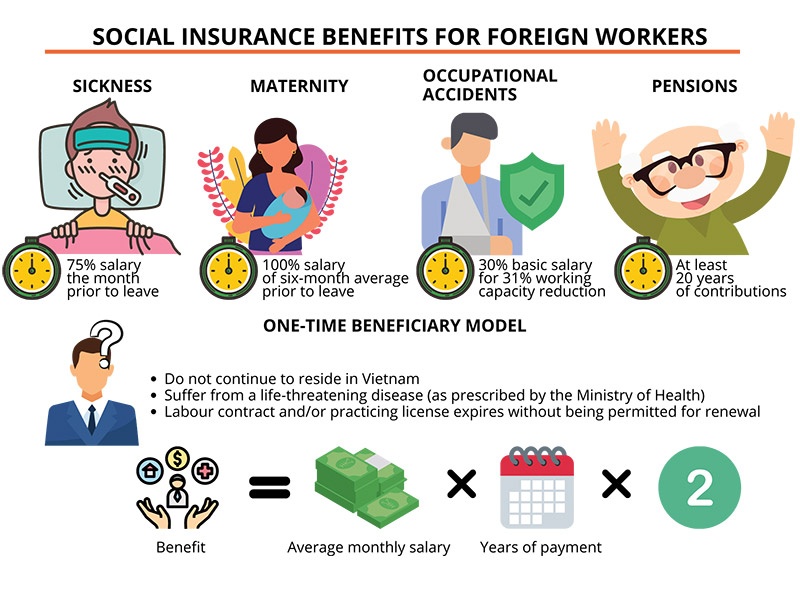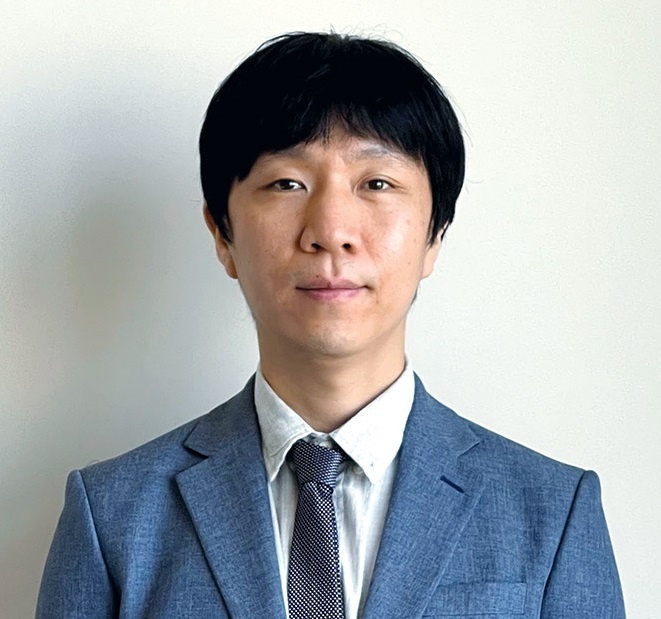Untangling current social insurance exemptions
 |
| Pham Tri Trung - Special counsel Baker & McKenzie Vietnam |
The Law on Social Insurance chose the beginning of 2018 to be the applicable time for the law for foreigners entering Vietnam to work with a permit, a practice certificate, or a practice licence issued by a competent authority of Vietnam. But starting from January this year, employers and foreign employees working under a local labour contract in Vietnam need to fully contribute to all the sub-funds of the SI fund.
According to the wording of the Law on Social Insurance, these foreign employees are entitled to the contribution of SI. Such a term should be understood as foreign employees having the right to, or an option to, join SI in Vietnam, instead of being forced to take part in it.
This issue has already been discussed during the process of drafting Decree No.143/2018/ND-CP, with the Ministry of Labour, Invalids, and Social Affairs (MoLISA) taking the approach that foreign employees are required to participate in SI in Vietnam.
Certainly, the application of SI for foreign employees is to ensure equality between foreign employees and Vietnamese employees in terms of rights and benefits in social security. Nonetheless, the characteristics of foreign employees, including international practice, need to be carefully considered during the process of drafting and implementing regulations.
Currently, Decree 143 prescribes that foreign employees who are intra-corporate transferees are not subject to the contribution of SI. Nevertheless, to be considered an intra-corporate transferee, a foreign employee must be an employee of a foreign enterprise (parent company) that has established its commercial presence in Vietnam (typically subsidiaries or representative offices), and temporarily transferred to its commercial presence in Vietnam, provided that he/she has worked for such parent company for at least 12 consecutive months.
As a matter of fact, employees transferred from a parent company do not always meet these requirements and as a result, the commercial presence in Vietnam is forced to apply for a work permit for such employees under the category of local hire.
In essence, these employees are still intra-corporate transferees, their salaries are still paid by their offshore parent company, and they have been contributing to social security offshore. However, due to the fact that they are not qualified to apply for a work permit as intra-corporate transferees, the commercial presence must apply for them under the local hire category, and therefore the employees will have local labour contracts under which the commercial presence in Vietnam needs to pay a certain amount of salaries for the employees.
Practically in such a case, the parent company will have to extract a part of the salary in the offshore labour contracts to pay for salaries in Vietnam. Consequently, such employees will have to pay SI premiums both overseas and in Vietnam.
Furthermore, in practice, foreign employees are not always transferred from the direct parent company but instead transferred from affiliates within the corporate group. These persons are also not qualified to be considered as intra-corporate transferees. Similarly, they still receive a salary from the offshore affiliates and still pay SI premiums overseas, while still having to simultaneously pay SI premiums in Vietnam under their local labour contracts.
Therefore, it would be much more reasonable if the law allowed foreign employees to not be subject to SI contributions in Vietnam if they are contributing to similar funds overseas.
Notably, Article 2.1(i), of Decree No.152/2020/ND-CP enacted in 2020 provides a category of foreign employees working in Vietnam as “managers, executives, experts, or technical workers”. Article 9.8(e) of this decree prescribes that the application dossier for work permit for such employees must include a document of the foreign enterprise, agency, or organisation assigning them to work in Vietnam, which is suitable to the job assignment they are expected to perform in Vietnam.
Although these regulations do not specifically address which situation these employees are permitted to enter Vietnam to work and whether there is any difference between them and intra-corporate transferees, it seems that as long as there is a foreign organisation assigning foreign employees to work in an organisation in Vietnam, such organisation may apply for a work permit under this category for those foreign employees.
If that is the case, it would be a solution for enterprises to avoid applying for a work permit for foreigners under the category of local hire and may prevent the foreigners’ contribution to the SI fund in Vietnam. However, since the issuance of Decree 152, it has been difficult for foreigners to enter Vietnam to work, so there have not been chances to verify this practice.
At the moment, the government and the MoLISA are trying their best to promote the negotiation and conclusion of bilateral agreements regarding SI to ensure the avoidance of duplicated contributions to SI in countries. Still, such negotiation and conclusion of agreements do take time. During this time, it is recommended that the MoLISA may consider setting up a temporary mechanism to exempt foreign employees who are contributing to SI overseas from the SI contribution in Vietnam, in order to relax the burden of expense on employers in Vietnam.
 |
| Jung Woo Han - Interim senior programme manager for Human Resource Management RMIT University
A recent study conducted in China to understand the impact of increasing social insurance (SI) premiums on actual wages suggests the current new law on SI in Vietnam would cause lowering in the actual wage (net salary) of employees and average wage, increasing the cost of staffing, while reducing the number of jobs in the market. As both employers and employees now have to pay more tax on the SI contribution, expatriates will receive a lower net salary while the employers must contribute a higher rate of the insurance premium on the staff, which causes the higher cost of staffing. In addition, the combined effects would reduce the demand for foreign workforce. On the other hand, the overall enhanced benefits may create a higher supply of labour in the markets, thus lowering the actual wage decrease even further. Overall, providing additional benefits and services for employees would improve employee engagement and satisfaction, thereby forming better productivity for the organisations. Notably, the Vietnamese government is trying to get bilateral agreements with other countries to avoid dual payments, which can encourage more people to come to Vietnam under the better (net) protection of the new SI law. However, if the net salary decrease is significant, it can possibly lower employee satisfaction, especially since net salary is still a clear predictor of employee job performance and voluntary turnover. The concern here is: the burden on the employers would get higher under the new regulation. If the burden drives the demand for foreign talent away (for example by hiring more local people to avoid the additional burden), this could create implicit costs of losing foreign talent that otherwise could have enhanced the productivity of Vietnam’s economy. Moreover, many foreign employees felt the previous benefits were not very noticeable. So, it should be clearly communicated how the additional costs would actually enhance the quality of their expat life. Additional support should be provided at the organisational and state levels to help expats access the additional services. |
What the stars mean:
★ Poor ★ ★ Promising ★★★ Good ★★★★ Very good ★★★★★ Exceptional
Related Contents
Latest News
More News
- Citi economists project robust Vietnam economic growth in 2026 (February 14, 2026 | 18:00)
- Sustaining high growth must be balanced in stable manner (February 14, 2026 | 09:00)
- From 5G to 6G: how AI is shaping Vietnam’s path to digital leadership (February 13, 2026 | 10:59)
- Cooperation must align with Vietnam’s long-term ambitions (February 13, 2026 | 09:00)
- Need-to-know aspects ahead of AI law (February 13, 2026 | 08:00)
- Legalities to early operations for Vietnam’s IFC (February 11, 2026 | 12:17)
- Foreign-language trademarks gain traction in Vietnam (February 06, 2026 | 09:26)
- Offshore structuring and the Singapore holding route (February 02, 2026 | 10:39)
- Vietnam enters new development era: Russian scholar (January 25, 2026 | 10:08)
- 14th National Party Congress marks new era, expands Vietnam’s global role: Australian scholar (January 25, 2026 | 09:54)


 Tag:
Tag:



















 Mobile Version
Mobile Version